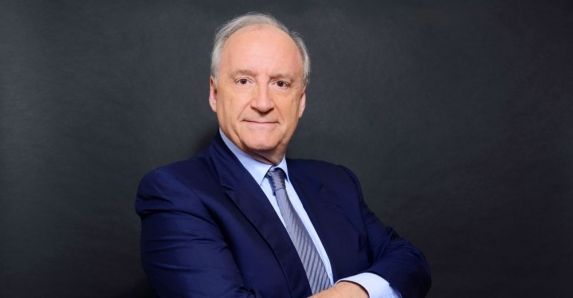
Brexit: what consequences for the banks?
Hubert Védrine has been French Minister of Foreign Affairs from 1997 to 2002. He unravels the challenges of a multipolar world.

A distinction must be made between upheavals and events. Upheavals do not happen every day. The events you are referring to are symptomatic of a semi-chaotic global context, a world without an international community and without global governance, a world that has not changed since the end of the Cold War. The international order only exists in the imagination of analysts.
However, we cannot call this a multi-polar world, however much we would like this to be the case, notably in France. Although we are seeing the emergence of a few elements of multi-polarity and incomplete multilateral frameworks, the American giant remains at the forefront. When Kissinger was speaking about multi-polarity, he perceived the United States as a superior form of power. In the particular context of the 1990s, I have raised the idea of an American "hyperpower", but this idea is no longer relevant.
After Kissinger and Brzezinski, there has been no global attempt to explain the world. There are poles of power, but some countries (North Korea, Singapore, Israel) exert an influence without however being significant "poles".
As for France, I would describe it as a middle-ranking power with a worldwide influence.
Can the emergence of several poles of power create a more balanced world? Or will it lead towards a more fragmented world ? How can we ensure that cooperation prevails over confrontation?
Cooperation is a choice made by countries according to their geopolitical interests, not to promote a world order. Therefore, there are as many reasons to choose cooperation as there are to choose confrontation. If the same type of balance of power existed as the one established by the Congress of Vienna in 1815, cooperation would override confrontation, and a more peaceful order could consequently emerge.
However, as things currently stand, such a balance of power remains wishful thinking: even if the United States, Russia, China, Japan, India, Brazil and the European Union managed to achieve a balance of power, this would still leave nearly 150 countries in the world outside this balance.
Besides, the current relationship between poles of power is more cooperative than antagonistic, but remains unstable.
Is the vitality of the emerging countries a guarantee of power on the international scene? Do you envisage China exercising as much power as the United States in the future?
Donald Trump is seeking to revitalise relations with Russia, but has run into resistance in the United States. What is your analysis of this subject? Is cooperation with Russia more effective than sanctions?
Where does the European Union fit into today's world? Can it be described as a power and if so, of which type?
As such, the European Union is not a traditional power, but an organization, a commercial entity which plays quite a modest role through sanctions and commercial agreements. Europeans do not want to exercise power, due to their attachment to norms, to the law, to multilateralism, civil society and democratic values. However, there are positive evolutions, such as the emphasis on a "Europe that protects", the consolidation of the Schengen area, the protection of strategic investments, the reference by President Macron to a "European sovereignty".
You have always denounced the tendency for Westerners to impose their value systems on the rest of the world. Do you think the West will reconsider its approach in the near future, in response to the upheavals it is facing?
I have always warned against this tendency for Westerners to behave as missionaries. Interference is not working anymore. For the West, which shares this proselytism with the Muslim world, it is difficult to call itself into question without feeling like it is renouncing its values because, since the emergence of the Christian West, its identity has been built on the concept of the need to propagate Western “enlightenment”. It is hard for us to admit that the world has changed and that we must now come to terms with entities that possess their own values and cultures.
In the United States, this tendency developed at a very early stage, with the desire to disseminate Wilsonian values. As for France, our imperialism stemmed from a great intellectual pretence: we consider that we are the birthplace of human rights, whereas we are only the birthplace of the declaration of human rights. The notion of human rights, although respectable because we should not renounce our beliefs, should not lead to political meddling. The aspiration to fundamental rights is universal, but it must stem from a natural dynamic that comes from within local societies.
You are involved in corporate consulting activities. Is multi-polarity a relevant analytical framework for firms? How do you envisage firms adapting to a multi-polar world?
Firms have practical concerns. They are primarily interested in the reality of consumer markets: the level of purchasing power, the existence or emergence of a middle class, the degree of political stability, good governance and legal certainty are the main criteria that determine a firm’s choice to start operating in a country.
However, firms are part of a geopolitical framework. Every country needs to ensure that they protect strategic firms which fall within the scope of national sovereignty, such as energy, technology, arms industry. France has lost considerable ground due to the industrial collapse that it has endured.